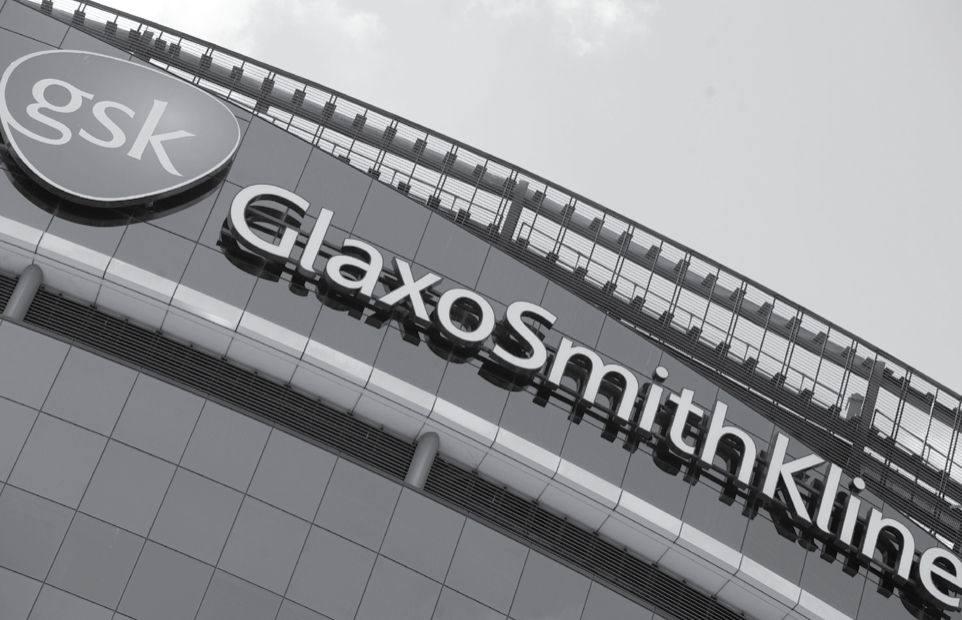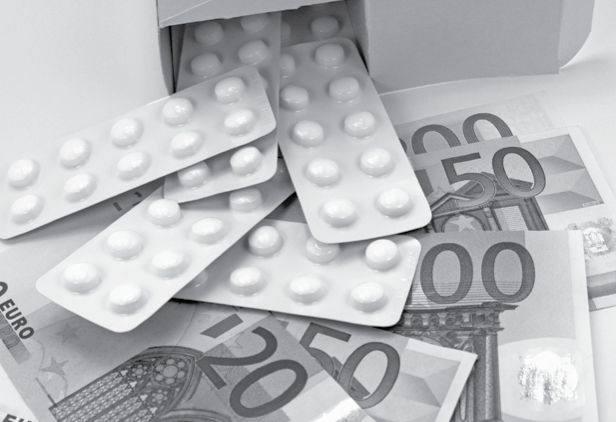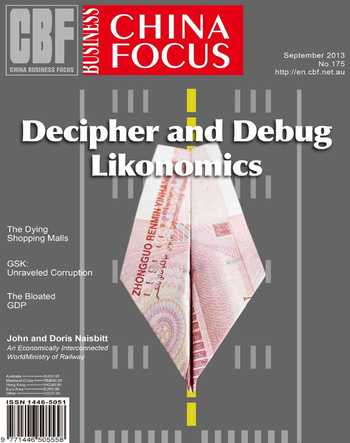GSK: Unraveled Corruption


When Liang Hong re- appeared, he was a prisoner held in the police station.
From the Vice President of GlaxoSmithKline (GSK) China and the General Manager of Business Department of that company to a prisoner behind bars, Liang Hong went through a great change of his fate.
And this change directly revealed GSK Chinas scandal in China.
On July 11, the police department in Changsha, Hunan, announced the initiation of investigation into GSK”s bribery in China. According to their announcement, GSK China bribed governmental officials, hospital leaders and physicians in the form of sending cashes/objects, sponsoring their essay publishing, taking them to overseas travels and so on, in order to open the drug sales channel and improve the price of drugs.
UK-based GSK, as the third largest pharmaceutical company in the world, has been trapped in corruption scandals for long. The case in China only intensified its predicament.
The Crime Records of GSK
Before Liang Hongs name was known to everyone, GSK China was haunted by the reports of illegal practices, departure of important figures and criticism of faking data.
At the end of May 2013, GSK Chinas Compliance Director resigned. This job is to review the bribery problems in the business and plays an important role in GSKs legal activity in every branch of the world. Therefore the resignation got a lot of attention from the public. Meanwhile, an academic essay written by Zang Jingwu, President of Research at GSK China, was reported to fake the data. On May 23, GSK headquarters sent a special team to Shanghai to have an investigation into this matter. The case was ended with Zang Jingwu and some others involved being fired.
But the trouble for GSK China was far from being ended. On June 13, Wall Street said that the insiders of GSK reported the commercial bribery and off-label promotion by GSK China to its headquarters.
Before the headquarters could take any actions, the police department in China intervened. On June 27, Liang Hong was arrested by the policemen along with Zhang Guowei, Vice HR President of GSK China, Zhao Hongyan, Director of Legal Affairs, and Huang Hong, General Manager of Business Development and Corporate Operation. The police department officially launched the investigation on July 11, which gradually unraveled the route of bribery of a multinational pharmaceutical company.
In a press conference, Gao Feng, a detect from the Crime Detection Department at Chinas Ministry of Public Security, said that GSK China transferred the capital of RMB 3 billion through travel agencies from 2007. Gao Feng also said that some travel agencies even provided sexual services for some senior executives of GSK China in order to win the support of GSK.
Among all travel agencies, there is one travel agency you cannot miss. Known as Shanghai Linjiang International Travel Agency, In spite of small size, this travel agency could earn billions of yuan each year, as shown in its financial report. Whats stranger is that it never conducted any tourism business and only dealt with pharmaceutical companies.
Weng Jianyong, Legal Representative of Linjiang International Travel Agency, was also arrested soon after Liang Hong, telling the key role the organization played in the bribery case of GSK. According to him, every time Liang Hong needed money to bribe some important figures, he would give sufficient cashes to Weng Jianyong and told him to “make the money reasonable in the following meetings”.
“Making money reasonable in meetings” almost became a term for GSK and travel agencies. As a worldknown pharmaceutical company, GSK sponsored a lot of professional meetings in the world and many occurred in China. As required by the headquarters, any meeting that costs over 20 thousand yuan should be organized by travel agencies and the travel agency is chosen through bidding. However, the headquarters does not limit the number of guests of a meeting. The financial department could tell the genuineness of invoices of meetings but could not check the number of guests.
This gave Liang Hong and his conspirators the opportunity. They told the travel agencies to issue real and legal invoice, but reported a larger number of guests. Therefore, the spending on the meeting shown on the invoice is higher than the real expenditure. The extra money was partially taken by Liang Hong and the others while the rest was used for the bribery.
The spokesman for the police department of Changsha, Hunan said that Liang Hong took the prominent role in the fake invoice. 20% of the meeting spending he reported was actually not for meeting, but for bribery and his own embezzlement.
The money for bribery was given to sales representatives of GSK China at different levels. These sales representatives were the ones who directly bribed governmental officials and physicians.
The initial investigation result shows that the deal between Linjiang International Travel Agency and GSK China in the past five years was valued at RMB 119 million, and RMB 20 million of the money was falsely reported. One tenth of the extra money was used by Liang to bribe officials and physicians while the rest was taken by Liang himself.


The Way of GSK
The bribery case of GSK China was wildly reported by different media in the world. Feeling the stress, GSK headquarters in London made an official apology on July 15.
“The company supports the Chinese governments determination to eradicate corruption and to carry on its medical reform. The probe has found some embarrassing problems and henceforth we express our deep sorrow for what has happened.”
The headquarters also said that the company would never tolerate the frauds and illegal behaviors done by some employees and third-party organizations or their violation against the companys global corporate rules, management process, moral standards and values.
“We will commit ourselves to cooperating with the Chinese government for the probe and take any necessary measures based on the result,” GSK said. “We are also going to take emergent measures to review our partnership with third-party organizations and have already stopped any cooperation with the involved travel agencies.”
GSKs immediate response means that the company wants to rebuild its image in China as quickly as possible, showing its recognition of the importance of Chinese market.
China is the now the second largest drug market next to the United States. All foreign pharmaceutical giants are busy expanding in China to get more profits from this country.
GSK is one of them. Actually, it is among the first foreign pharmaceutical companies that got into China. The anti-cold drug Contac is still the most popular product in China.
In the past 20 years in China, GSK has already invested over RMB 1 billion into the drug development and clinical research in China. The income from the Chinese market accounts for 3% of the total income and the business development in China is much faster than other countries.
At the beginning of this year, GSK Chinas president Mark Reilly said that the company is going to improve the production capacity in China to supply 75% of the drugs sold in this country. In 2009, the proportion was only 30%.
The fast development could not save GSK from the worries since the competition is so furious. The furious competition leads to mean competitive measures. In addition to GSK, Lilly, Johnson & Johnson and other worldknown pharmaceutical companies were once reported with the same problem as well. It seems that bribery has become a hidden rule in Chinas drug market and now the Chinese companies joined in.
According to the statistics of Chinas Ministry of Commerce, the bribery in the drug market in China amounted to RMB 772 million every year, accounting for 16% of the tax from this industry. The current drug supply system determines that doctors have the ulterior right to prescribe whatever drug they like. Thats why the drug companies want to win their favor, even in the way of bribery.
The result of the corruption in the drug market led to the expensive drugs. A research made by CCTV showed that the drugs sold to patients are usually five times – some are even 65 times –as expensive as its factory price, which is main factor for the havoc of Chinese drug market.
It is the foreign company which brought the “sales representatives of drug” to China, and these “sales representatives” were the first to bribe doctors for the sale of drugs. But the key problem is not with them, nor with GSK or other pharmaceutical companies. It is rooted in the drug supply system of China.
Even though GSK was severely punished for the bribery case, the corruption in Chinas drug market cannot be completely removed as more GSKs will follow suit for a bigger market share.

